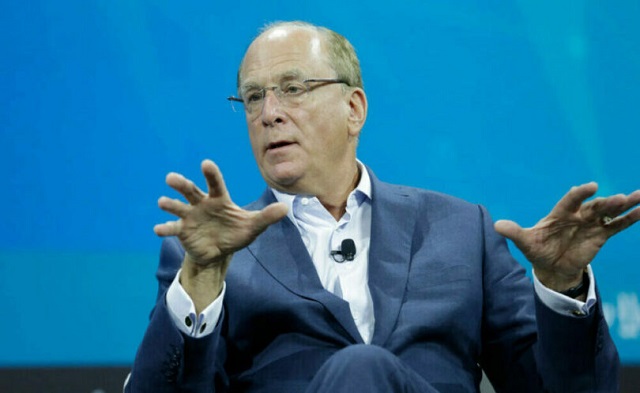Agriculture
Provincial Government gets crackin’ on support for “Poultry” technicians

From the Province of Alberta
Agriculture
Bill C-282, now in the Senate, risks holding back other economic sectors and further burdening consumers

From the Frontier Centre for Public Policy
Bill C-282 currently sits in the Canadian Senate and stands on the precipice of becoming law in a matter of weeks. Essentially, this bill seeks to bestow immunity upon supply management from any potential future trade negotiations without offering increased market access to potential trade partners.
In simpler terms, it risks holding all other economic sectors hostage solely to safeguard the interests of a small, privileged group of farmers. This is far from an optimal scenario, and the implications of this bill spell bad news for Canadians.
Supply management, which governs poultry, egg, and dairy production in Canada, has traditionally enabled us to fulfill our domestic needs. Under this system, farmers are allocated government-sanctioned quotas to produce food for the nation. At the same time, high tariffs are imposed on imports of items such as chicken, butter, yogurt, cheese, milk, and eggs. This model has been in place for over five decades, ostensibly to shield family farms from economic volatility.
However, despite the implementation of supply management, Canada has witnessed a comparable decline in the number of farms as the United States, where a national supply management scheme does not exist. Supply management has failed to preserve much of anything beyond enriching select agricultural sectors.
For instance, dairy farmers now possess quotas valued at over $25 billion while concurrently burdening dairy processors with the highest-priced industrial milk in the Western world. Recent data indicates a significant surge in prices at the grocery store, with yogurt prices alone soaring by over 30 percent since December 2023. This escalation is increasingly straining the budgets of many consumers.
It’s evident to those knowledgeable about the situation that the emergence of Bill C-282 should come as no surprise. Proponents of supply management exert considerable influence over politicians across party lines, compelling them to support this bill to safeguard the interests of less than one percent of our economy, much to the ignorance of most Canadians. In the last federal budget, the dairy industry alone received over $300 million in research funds, funds that arguably exceed their actual needs.
While Canada’s agricultural sector accounts for approximately seven percent of our GDP, supply-managed industries represent only a small fraction of that figure. Supply-managed farms represent about five percent of all farms in Canada. Forging trade agreements with key partners such as India, China, and the United Kingdom is imperative not only for sectors like automotive, pharmaceuticals, and biotechnology but for the vast majority of farms in livestock and grains to thrive and contribute to global welfare and prosperity. It is essential to recognize that Canada has much more to offer than merely self-sufficiency in food production.
Over time, the marketing boards overseeing quotas for farmers have amassed significant power and have proven themselves politically aggressive. They vehemently oppose any challenges to the existing system, targeting politicians, academics, and groups advocating for reform or abolition. Despite occasional resistance from MPs and Senators, no major political party has dared to question the disproportionate protection afforded to one sector over others. Strengthening our supply-managed sectors necessitates embracing competition, which can only serve to enhance their resilience and competitiveness.
A recent example of the consequences of protectionism is the United Kingdom’s decision to walk away from trade negotiations with Canada due to disagreements over access to our dairy market. Not only do many Canadians appreciate the quality of British cheese, but increased competition in the dairy section would also help drive prices down, a welcome relief given current economic challenges.
In the past decade, Canada has ratified trade agreements such as CUSMA, CETA, and CPTPP, all of which entailed breaches in our supply management regime. Despite initial concerns from farmers, particularly regarding the impact on poultry, eggs, and dairy, these sectors have fared well. A dairy farm in Ontario recently sold for a staggering $21.5 million in Oxford County. Claims of losses resulting from increased market access are often unfounded, as farmer boards simply adjust quotas when producers exit the industry.
In essence, Bill C-282 represents a misguided initiative driven by farmer boards capitalizing on the ignorance of urban residents and politicians regarding rural realities. Embracing further protectionism will not only harm consumers yearning for more competition at the grocery store but also impede the growth opportunities of various agricultural sectors striving to compete globally and stifle the expansion prospects of non-agricultural sectors seeking increased market access.
Dr. Sylvain Charlebois is senior director of the agri-food analytics lab and a professor in food distribution and policy at Dalhousie University.
Agriculture
Degrowth: How to Make the World Poorer, Polluted and Miserable

From StosselTV
Activists have a new goal: “DEgrowth.”
They say “growth is killing us.” They couldn’t be MORE wrong.
“Growth is not killing us. It’s saving us!” says author Johan Norberg. He explains why growth is essential to human progress, especially for poor people. “In poor countries, if you manage to grow by 4% annually over 20 years,” he points out, “that reduces poverty in that country on average by 80%.
But DEgrowth activists insist that growth means “climate chaos.” They say a smaller economy would be “sweeter.” They say “We must urgently dismantle capitalism!” It’s destructive nonsense. This video explains why.
————
To get our new weekly video from Stossel TV, sign up here: https://www.johnstossel.com/#subscribe
————
After 40+ years of reporting, I now understand the importance of limited government and personal freedom.
——————————————
Libertarian journalist John Stossel created Stossel TV to explain liberty and free markets to young people.
Prior to Stossel TV he hosted a show on Fox Business and co-anchored ABC’s primetime newsmagazine show, 20/20. Stossel’s economic programs have been adapted into teaching kits by a non-profit organization, “Stossel in the Classroom.” High school teachers in American public schools now use the videos to help educate their students on economics and economic freedom. They are seen by more than 12 million students every year.
Stossel has received 19 Emmy Awards and has been honored five times for excellence in consumer reporting by the National Press Club.
Other honors include the George Polk Award for Outstanding Local Reporting and the George Foster Peabody Award.
-

 Censorship Industrial Complex2 days ago
Censorship Industrial Complex2 days agoDesperate Liberals move to stop MPs from calling Trudeau ‘corrupt’
-

 Great Reset2 days ago
Great Reset2 days agoTerrorists Welcome: Chronic counterterrorism lapses at the border demand investigation
-

 Health1 day ago
Health1 day agoTransgender activists are threatening the author of scathing UK report on child ‘sex changes’
-

 conflict2 days ago
conflict2 days agoCol. Douglas Macgregor: US is ‘facing disaster’ as it funds overseas wars while bankrupt
-

 conflict22 hours ago
conflict22 hours agoCol. Douglas Macgregor torches Trump over support for bill funding wars in Ukraine and Israel
-

 Energy2 days ago
Energy2 days agoA Wealth-Creating Way of Reducing Global CO2 Emissions
-

 Frontier Centre for Public Policy21 hours ago
Frontier Centre for Public Policy21 hours agoThe end of Canada: The shift from democracy to totalitarian behavior in the ‘pandemic era’
-

 COVID-191 day ago
COVID-191 day agoInquiry shows Canadian gov’t agencies have spent $10 million on social media ads for COVID jabs








